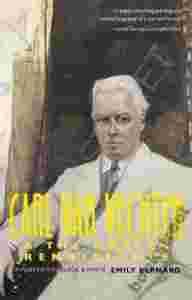|
Carl Van Vechten was a white man with a passion for
blackness who played a crucial role in helping the
Harlem Renaissance, a black movement, come to understand
itself. "Carl Van Vechten and the Harlem Renaissance" is
grounded in the dramas occasioned by the Harlem
Renaissance, as it is called today, or New Negro
Renaissance, as it was called in the 1920s, when it
first came into being. Emily Bernard focuses on writing
- the black and white of things - the articles, fiction,
essays and letters that Carl Van Vechten wrote to black
people and about black culture, and the writing of the
black people who wrote to and about him. Above all, she
is interested in the interpersonal exchanges that
inspired the writing, which are ultimately far more
significant than the public records would suggest. This
book is a partial biography of a once very controversial
figure. It is not a comprehensive history of an entire
life, but rather a chronicle of one of his lives, his
black life, which began in his boyhood and thrived until
his death. The narrative at the core of "Carl Van
Vechten and the Harlem Renaissance" is not an attempt to
answer the question of whether Van Vechten was good or
bad for black people, or whether or not he hurt or
helped black creative expression during the Harlem
Renaissance. As Bernard writes, the book instead
"enlarges that question into something much richer and
more nuanced: a tale about the messy realities of race,
and the complicated tangle of black and white".
|
|

